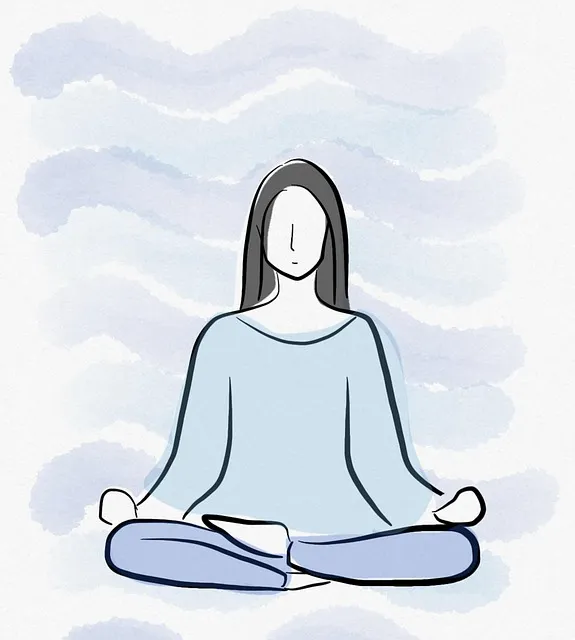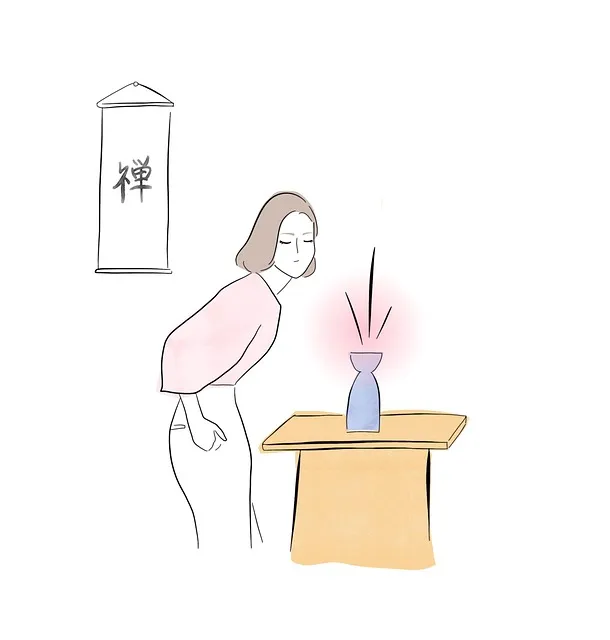The Kaiser Permanente Mental Health Access Center Golden employs a comprehensive strategy for stress management, focusing on identifying triggers and symptoms through CBT and mindfulness practices, supported by extensive research. They promote mental health awareness, encouraging tailored coping strategies based on individual needs, whether work-related or personal. The center's holistic approach includes community outreach programs, self-care practices, and conflict resolution techniques to enhance quality of life and foster resilience. By integrating these methods, Kaiser Permanente mental health access center Golden empowers individuals to effectively manage stress, improve mental well-being, and lead happier, more balanced lives.
Stress management techniques are essential tools for maintaining mental well-being, particularly in today’s fast-paced world. At the Kaiser Permanente Mental Health Access Center and the Golden Center, professionals offer comprehensive guidance on understanding and mitigating stress. This article explores various evidence-based approaches, from cognitive behavioral therapy (CBT) and mindfulness practices to lifestyle modifications and relaxation strategies. By integrating these techniques, individuals can build resilience and effectively navigate life’s challenges, enhancing their overall quality of life.
- Understanding Stress: Identifying Triggers and Symptoms at Kaiser Permanente Mental Health Access Center
- Evidence-Based Techniques: Cognitive Behavioral Therapy (CBT) and Mindfulness Practices for Effective Stress Management
- Lifestyle Modifications: Healthy Habits to Reduce Stress and Improve Overall Well-being
- Relaxation Strategies: Deep Breathing, Progressive Muscle Relaxation, and Visualization Techniques
- Building Resilience: Coping Skills and Support Systems for Navigating Life's Challenges at the Golden Center
Understanding Stress: Identifying Triggers and Symptoms at Kaiser Permanente Mental Health Access Center

At Kaiser Permanente Mental Health Access Center Golden, understanding stress involves a comprehensive approach that begins with identifying triggers and symptoms. The center emphasizes mental health awareness, encouraging individuals to recognize signs of stress in their daily lives. This proactive mindset is crucial for effective stress management techniques teaching. By pinpointing specific stressors, whether they’re related to work, relationships, or personal challenges, one can begin to develop tailored coping strategies.
The Kaiser Permanente Mental Health Access Center Golden also highlights the importance of community outreach program implementation. Through various initiatives and self-care practices, individuals learn not only to manage stress but also to foster resilience. This holistic approach ensures that people from diverse backgrounds gain access to essential tools for maintaining mental well-being, ultimately enhancing their quality of life.
Evidence-Based Techniques: Cognitive Behavioral Therapy (CBT) and Mindfulness Practices for Effective Stress Management

Cognitive Behavioral Therapy (CBT) and mindfulness practices stand out as evidence-based techniques for effective stress management, backed by extensive research from esteemed institutions like the Kaiser Permanente Mental Health Access Center. CBT helps individuals identify and challenge negative thought patterns, replacing them with more positive and realistic ones. This process empowers people to manage their emotions and reduce stress responses, making it a powerful tool in navigating challenging situations.
Mindfulness practices, on the other hand, encourage individuals to focus on the present moment without judgment. Through techniques like meditation and deep breathing exercises, mindfulness fosters emotional regulation, enabling folks to better cope with stressors. The implementation of these practices has been shown to yield significant improvements in mental well-being, making them valuable components of any stress management strategy, especially when coupled with community outreach program initiatives or conflict resolution techniques, as promoted by the Kaiser Permanente Mental Health Access Center’s Golden program.
Lifestyle Modifications: Healthy Habits to Reduce Stress and Improve Overall Well-being

At the Kaiser Permanente Mental Health Access Center Golden, we understand that stress management is an integral part of maintaining good mental wellness. One effective approach to managing stress lies in adopting healthier lifestyle modifications and self-care practices. This involves a combination of physical activities like regular exercise, sufficient sleep, and proper nutrition, all of which contribute to building resilience against daily stressors.
By prioritizing these healthy habits, individuals can significantly reduce their overall stress levels and improve their mental wellness. Incorporating mindfulness exercises, such as meditation or deep breathing, into one’s routine has also proven effective in calming the mind and promoting a sense of calm. These self-care practices are essential tools for managing stress and fostering mental wellness, ultimately leading to a happier and more balanced life.
Relaxation Strategies: Deep Breathing, Progressive Muscle Relaxation, and Visualization Techniques

Stress management is a crucial aspect of maintaining good mental health, and various relaxation strategies can be powerful tools to achieve this. At the Kaiser Permanente Mental Health Access Center Golden, individuals learn effective techniques like deep breathing exercises, progressive muscle relaxation (PMR), and visualization methods. These practices have been shown to reduce stress levels and enhance overall well-being.
Deep breathing involves focusing on slow, controlled inhalation and exhalation, which activates the body’s relaxation response. PMR is a technique where one systematically tenses and then relaxes different muscle groups, leading to a sense of physical and mental calmness. Visualization techniques encourage individuals to imagine peaceful scenes or positive outcomes, providing an escape from stressful thoughts. Combining these strategies can create a comprehensive approach to stress management, offering individuals the tools to navigate challenging situations with enhanced resilience and improved mental health.
Building Resilience: Coping Skills and Support Systems for Navigating Life's Challenges at the Golden Center

At the Kaiser Permanente mental health access center Golden, building resilience is a cornerstone of their approach to teaching stress management techniques. Through various programs and services, individuals are equipped with coping skills designed to navigate life’s challenges effectively. The center promotes Mental Health Awareness by offering workshops on conflict resolution techniques, mindfulness practices, and emotional intelligence development. These initiatives aim to empower folks to handle stressful situations with greater ease and resilience.
Support systems play a pivotal role in the holistic approach taken at the Golden Center. Clients are encouraged to build strong social networks and learn healthy ways of communicating their needs. By fostering open dialogue and providing a safe space, the center helps individuals develop coping skills that resonate with their unique experiences. This personalized approach ensures that each person leaves the program with practical tools tailored to their mental health journey.
Stress management techniques are invaluable tools for improving overall well-being, as demonstrated by programs at the Kaiser Permanente Mental Health Access Center and Golden Center. By understanding stress triggers and symptoms, employing evidence-based methods like CBT and mindfulness, adopting healthy lifestyle modifications, and utilizing relaxation strategies, individuals can build resilience to navigate life’s challenges. These comprehensive approaches, accessible through resources like the Kaiser Permanente mental health access center and the Golden Center, empower folks to take control of their mental health and live more fulfilling lives.






